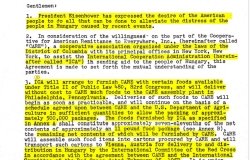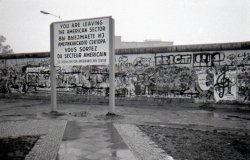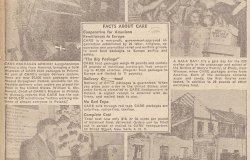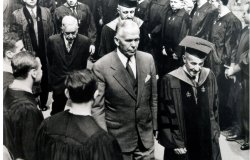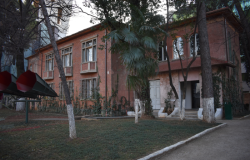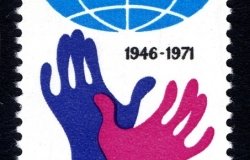Former CWIHP Fellow Publishes New Book on the Sino-Soviet Split
Former CWIHP Fellow Jordan Baev publishes new book on the Eastern European perspective of the Sino-Soviet split.
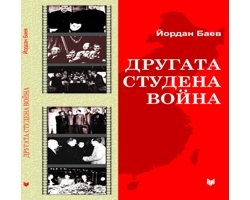
The Cold War International History Project is pleased to announce the publication of former CWIHP Fellow Jordan Baev's new book Sino-Soviet Conflict and Eastern Europe. Drawing upon Bulgarian documents and archives, the book offers a ground-breaking new look into a fascinating chapter of Cold War history. Baev was prompted to write the book after his experience working with the electronic catalogues of the leading Bulgarian libraries showed that records on the contemporary history of China were so scarce that one could not seriously study modern Chinese or Asian studies in Bulgaria. During the first decade after the establishment of the People's Republic of China, all publications were mainly informative and essentially positive but with clear traces of Soviet influence.
From the early 1960s until the early 1980s, Bulgarian academic research on China was a component of the general ideological struggle against Maoism. Only in the waning years of Communist rule in Bulgaria did several analytical works appear as an attempt to move away from this old bias. Those publications were intended for "internal use only" however, and were not accessible by the general public. The process of broader access to the political, diplomatic, and intelligence archives in Central and Eastern Europe created greater opportunities for thorough research on the Sino-Soviet split and its repercussions within the "Warsaw Pact" bloc in the 1960s-1980s.
The efforts of the international academic community in the past two decades has made possible the revealing, selection, and publication of a number of new volumes with a great variety of documentary evidence from different national archival collections in Europe, Asia, and North America. They shed new light on the real motives, historical background, and long term aims of the two leading Communist powers during the lesser-known "Other Cold War" between the Soviet Union and China.
Related Programs

Cold War International History Project
The Cold War International History Project supports the full and prompt release of historical materials by governments on all sides of the Cold War. Through an award winning Digital Archive, the Project allows scholars, journalists, students, and the interested public to reassess the Cold War and its many contemporary legacies. It is part of the Wilson Center's History and Public Policy Program. Read more

Global Europe Program
The Global Europe Program is focused on Europe’s capabilities, and how it engages on critical global issues. We investigate European approaches to critical global issues. We examine Europe’s relations with Russia and Eurasia, China and the Indo-Pacific, the Middle East and Africa. Our initiatives include “Ukraine in Europe” – an examination of what it will take to make Ukraine’s European future a reality. But we also examine the role of NATO, the European Union and the OSCE, Europe’s energy security, transatlantic trade disputes, and challenges to democracy. The Global Europe Program’s staff, scholars-in-residence, and Global Fellows participate in seminars, policy study groups, and international conferences to provide analytical recommendations to policy makers and the media. Read more

History and Public Policy Program
The History and Public Policy Program makes public the primary source record of 20th and 21st century international history from repositories around the world, facilitates scholarship based on those records, and uses these materials to provide context for classroom, public, and policy debates on global affairs. Read more
